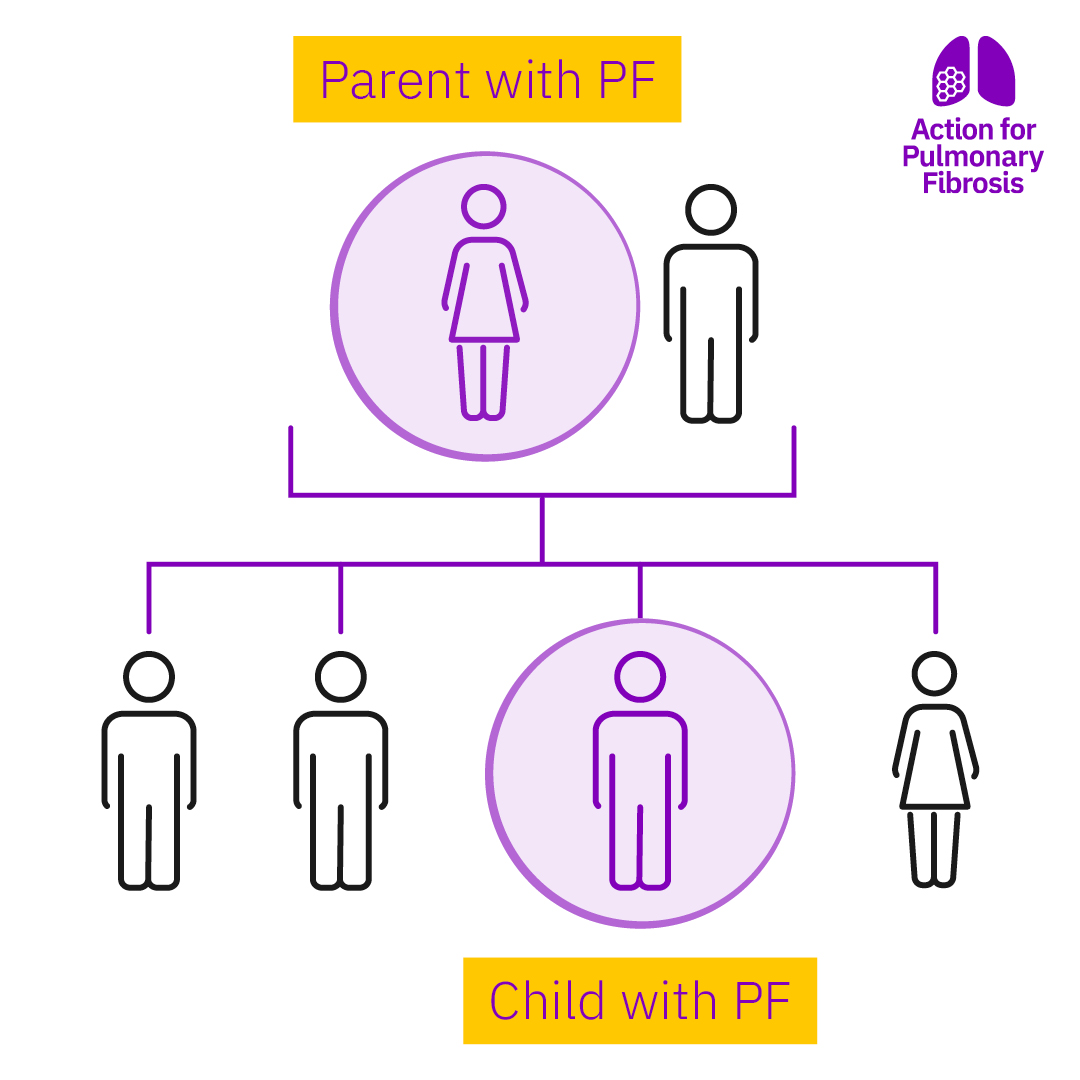
How are genes linked to disease?
DNA is found in almost every cell of our body. You can think of it like an instruction book. Genes are small sections of DNA, like individual sentences in the book. Genes tell our cells how to grow and how to work.
Small changes in DNA, called genetic variants, can change these instructions. This can make the body work differently and sometimes lead to disease.
Genetic variants can:
- happen randomly
- be caused by things like pollution or certain medicines
- be passed down from a parent to their child
Can PF be passed down through families (inherited)?
Yes. In some cases, PF can be partly caused by changes in genes passed down from parents. There isn’t just one gene involved. Changes in several genes that help the lungs grow and heal can lead to PF.
What is familial PF?
Familial pulmonary fibrosis means someone with PF has at least one close relative with PF. A close relative usually means a parent, sibling or child. Familial pulmonary fibrosis is not a diagnosis. It’s a way to describe people who have affected family members.

Why are some family members affected and others are not?
Every child has a 1 in 2 chance of inheriting a genetic variant from a parent. Even if several family members have the same genetic variant linked to PF, they aren’t all guaranteed to develop the disease. This is because, although the genetic variant increases their risk of developing PF, there are other factors that matter. This includes:
- the rest of the individual’s genetic makeup, which will be unique in everyone
- breathing in something that irritates the lungs, such as smoke or dust – this will usually happen repeatedly over a long time
- other health conditions that can lead to lung scarring, e.g. rheumatoid arthritis
- some medications
- gastro-oesophageal reflux disease (GORD)
- age
My family member has PF. What can I do to reduce my risk of also getting PF?
It’s understandable to be concerned about PF if someone in your family has it. You can’t completely remove the risk of getting PF, but there are things you can do that might help reduce it.
Look after your lungs
Living a healthy lifestyle and reducing harmful environmental exposures can help reduce the risk of developing pulmonary fibrosis and other diseases. Read more about keeping your lungs healthy.
Don’t ignore signs and symptoms
Family members without symptoms can share their family history of lung disease with their GP. This information can help future investigations.
If you notice any signs or symptoms of PF, you should tell your GP straight away.
Genetic testing
Genetic testing looks at your DNA for specific genetic variants that are linked to PF. We can only test for the genetic variants that we already know about. There may be other genetic variants linked to PF that we haven’t yet discovered. We cannot yet test for them as we don't know what they are.
Testing isn’t always available or needed, and it may not change how PF is treated. Your healthcare team can advise based on your personal situation.
You can read more about genetic testing on the NHS website or Genetic Alliance UK.
Further support and information
If you have questions about your specific situation, please speak to your healthcare team.
{{genetics-info-feedback-survey="/include"}}
Our website and resources provide general information only. We cannot provide medical advice, treatment or prescriptions, nor can we assess/decide what services or clinicians you should be referred to. Support with these matters will need to be provided by your existing healthcare professional teams.
APF is not responsible for any errors or omissions or for any loss or damage suffered by users resulting from the information published on our website or in our resources.
Further information for carers:


